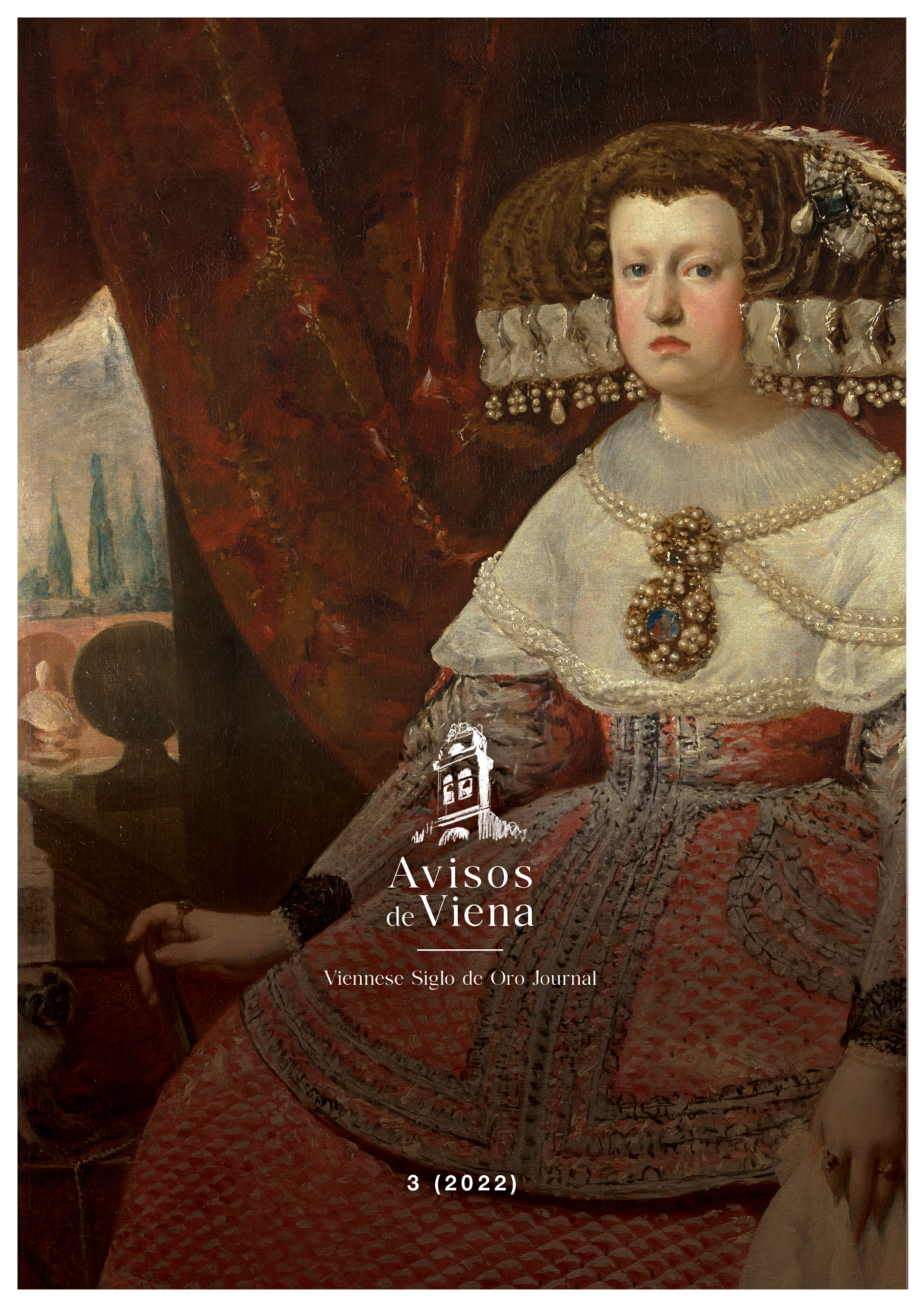La comadre Catalina de Cuenca y la suposición de un parto
DOI:
https://doi.org/10.25365/adv.2022.3.6578Keywords:
Catalina de Cuenca, Child substitution, Early modern societyAbstract
This article explores the significance of digital tools in historical research, utilizing examples like the case of Catalina de Cuenca to illustrate the wealth of information unearthed from dispersed historical records. Catalina's involvement in a child substitution scheme sheds light on the complexities of early modern society. Despite facing severe repercussions, her story intertwines with pivotal historical events, such as the birth of Prince Felipe Próspero. The narrative underscores the enduring relevance of historical crimes like child substitution, echoing through literature and contemporary legal frameworks. Through digital archives, researchers dissect these narratives, revealing insights into societal norms, familial relations, and legal ramifications across centuries.
References
Aichinger, Wolfram, & Dulmovits, Alice-Viktoria. Escenarios de parto y bautismo de urgencia en libros de bautismo del siglo XVII. Revista Historia Autónoma, 16, 2020, pp. 13-35. doi: https://doi.org/10.15366/rha2020.16.001
Aichinger, Wolfram. Dar tiempo al tiempo. Embarazo, legitimidad y calendarios femeninos en Calderón y en la sociedad del Siglo de Oro. Bulletin of the Comediantes, 72(2), 2020, pp. 93-115.
Barrionuevo, Jerónimo de. Avisos de Don Jerónimo de Barrionuevo, ed. A. Paz y Mélia, tomo IV. Madrid, M. Tello, 1893.
Carlos Varona, María Cruz de. Nacer en palacio. El ritual del nacimiento en la corte de los Austrias. Madrid, Centro de Estudios Europa Hispánica, 2018.
Carracedo Falagán, Carmen. Tratamiento jurídico-penal de la suposición de parto o parto fingido en la Edad Moderna. In Sonia García Galán, Silvia Medina Quintana, & Carmen Suárez Suárez (eds.), Nacimientos bajo control. El parto en las edades Moderna y Contemporánea. Gijón, Trea, 2014, pp. 67-73.
Carranza, Alonso. Disputatio de vera naturalis et legitimi partus designatione. Madrid, Francisco Martínez, 1628.
Castilla Pérez, Roberto (ed.). Edición del manuscrito 5.918 de la Biblioteca Nacional de España sobre la visita realizada a las casas de Madrid en 1625 (según el plano de Texeira). Alicante, Biblioteca Virtual Miguel de Cervantes, 2014.
Dulmovits, Alice. Unseen Heirs. Written Traces of Pregnant Widows and Posthumous Children in Early Modern Spain (1490-1673). Hipogrifo, 6(1), 2018, pp. 433-449. doi: http://dx.doi.org/10.13035/H.2018.06.01.31
Fernández García, Matías. Parroquia madrileña de San Sebastián: algunos personajes de su archivo. Madrid, Caparrós Editores, 1995.
López de Cuéllar y Vega, Juan. Tratado jurídico, político: práctica de indultos según las leyes y ordenanzas reales de Castilla y de Navarra. Pamplona, Martín Gregorio de Zabala, 1690.
Moretón Toquero, María Aránzazu. La suposición de parto, la ocultación y sustitución de niños, y el tráfico de menores. Barcelona, Bosch, 2001.
Ruiz Comin, Nuria. Familia y ciclo de la vida: una mirada desde el dormitorio. Nuevo Mundo Mundos Nuevos [Online], Colóquios, posted online on 16 September 2008, consulted on 2 June 2021. doi: https://doi.org/10.4000/nuevomundo.40372
Downloads
Published
How to Cite
Issue
Section
License
Copyright (c) 2022 Wolfram Aichinger

This work is licensed under a Creative Commons Attribution 4.0 International License.
© Open Access, CC BY 4.0








